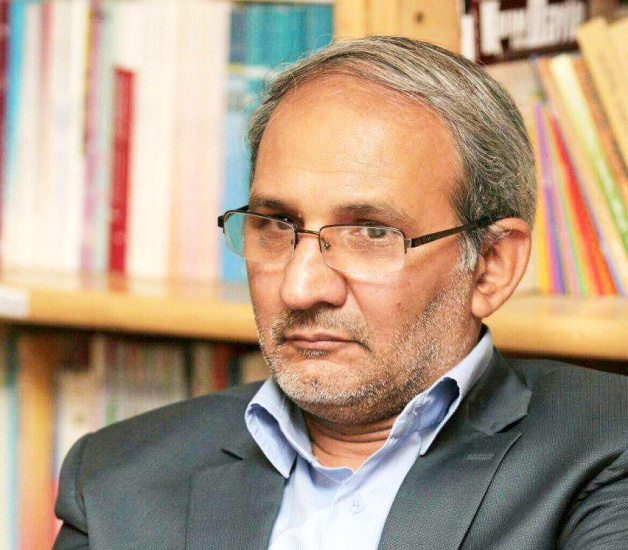Editor’s note: The Quran’s desecration in Western countries has elicited strong responses from the Islamic world and stirred up social outrage in Muslim societies, compelling their governments to coordinate and adopt joint positions against the Western governments’ indifference. Mahmood Shoori, through his meticulous research, has eloquently illuminated “the role of religion in contemporary international relations”. A seasoned scholar, Shoori’s doctoral dissertation focused on “International Relations and The Return of Religion; The Confrontation of Truth Regimes”. He has authored the academic paper, “Science of International Relations and The Issue of The Return of Religion”. Shoori posits that the influence of religion in international relations has garnered theoretical discourse over several decades. Indeed, the subsequent article offers exposition on how the unavoidable influence of religion pervades foreign relations of Islamic countries and the sphere of international relations in its entirety.
By Mahmood Shoori
International relations scholars have been perplexed by a rather novel issue over recent decades – the clout of “religion” or “religious matter” in international developments. The last four decades have witnessed this influence come to life in varied forms – from the Islamic Revolution in Iran to the rise of groups like Al-Qaeda and ISIS, and the success of Islamist factions in elections across several countries. In essence, ever since the dawn of the 1980s, the world has been a quiet observer to a series of episodes that, in spite of the lack of a systematic connection with each other, indicated the emergence of a powerful new player on the international platform; The most prominent shared characteristic of which is its focus on infusing religious teachings in the political and social lives of people.
The Islamic Revolution in Iran is regarded as a turning point. It wasn’t merely notable as it heralded the reign of a religious system in Iran but also because it brought religion back into the limelight as an “issue” after years or possibly centuries.
The ‘Satanic Verses’, penned by Salman Rushdie of British Indian origin, released at the end of 1988 sparked vehement opposition from Muslims globally. The global Muslim community, perhaps for the first time consisting of variegated sects, came together in widespread protest against what they perceived to be an offense, holding accountable not just an individual but all Western powers.
In the early 1990s, as the American military set foot in the Persian Gulf, the notion of returning to religion took on fresh aspects and forms in Islamic countries under the influences of the actions of the Al-Qaeda and the emergence of the Taliban in Afghanistan in 1996. Islamism of the Taliban and Al-Qaeda, commonly referred to as Salafi or radical Islam, displayed a distinct variant of Islamism compared to the largely Shia oriented Iranian Islam that characterized the 1980s.
What is conceptually intriguing is that concurrently with the Taliban’s ascension in Afghanistan in 1996, another Islamic resurgence initiated in Turkey, albeit with a more moderate aspect. The Welfare Party’s success signified the first Islamic party’s breakthrough in Turkey’s political landscape after a lengthy interval. The emergence of this led to Najmuddin Arbakan, the party leader, assuming the role of Prime Minister, albeit briefly.
The dawn of the 21st century brought with it a profound twist of fate; whilst the United Nations was honoring the concept of Dialogue Among Civilizations – a notion viewed largely as an offspring of Iranian Islamism – the incident of September 11, 2001, subtly steered global consciousness toward acknowledging that the most prevalent manifestation of return to religion in Islamic nations carried the visage of Taliban or Al-Qaeda-inspired Islam. This event eclipsed the discussion of religious revival as a potential panacea for the status quo in Islamic societies, replacing it with a violent narrative, stirring up historical memories akin to the Crusades.
Predictably, the ensuing course of recent decades has instigated widespread theoretical disputes across various domains of social sciences, not to forget political stances. One contributing factor to this phenomenon undeniably stems from the profound and pervasive impact of religion on societal and individual life. Throughout history, religions have been pivotal catalysts for transformation, with the most seminal shifts in human history being ushered by the emergence of great religions. By this current phase, the international re-emergence of religion, as per the appraisal of select analysts, signifies the commencement of a new global epoch.
Conceptually, over a time frame spanning close to two decades, a sizable ensemble of analysts and theoreticians have strived to furnish historical and theoretical explanation for these occurrences. The initial responses to questions surrounding the essence and dimensions of this new phenomenon were predominantly furnished by political leaders. With the onset of the 1980s, attempts at accounting for the religious resurgence in some Islamic societies were largely attributed to the revolutionary government in Iran and its interest to export the revolution. However, it soon became apparent that this trend bore wider contexts and dimensions than being merely confined to the initiative of a newly established government. As a result, a step back was taken, allowing for an understanding that has sought to reduce it to a byproduct of traditional Islam, underscoring concepts such as “Islamism”, “political Islam” or “fundamentalism”.
In the 1990s, the escalating international visibility of new forces culminated in these developments being branded the “Islamic threat” in political and media circles, replacing the once prevalent “communist threat”. The aftermath of the September 11 incident aligned these developments in the political and media spaces with the narrative of a much-hyped “War on Terror”.
Extricated from political and media lenses, it was historians and orientalists who initially took on the mantle of elucidating these developments within Western societies, given the unfamiliarity and disinterest exhibited by scholars of international relations. The emphasis was placed on concepts such as the historical and fundamental antagonism between Islam (as both religion and civilization) and Western paradigms, encompassing its cultural appendices such as modernity and democracy. These were the ideas gaining prominence within the sociological construct developed by the neo-orientalists. In this context, developments in recent decades were conceptualized either as “cultural conflicts” or as “Third World rebellion against the West”. There were also theorists who attributed it to the shortcomings of modernity. The renowned American political scientist, Samuel Huntington, offered his interpretation in the form of the “Clash of Civilizations”.
The far-reaching international implications stirred by the event of September 11 not only motivated scientists of international relations to broach the topic of “the resurgence of religion in international relations” – a conversation necessitating the grave reevaluation of past theories -, but the event also vitalized even philosophers and intellectuals such as Jurgen Habermas, John Rawls, Alain Badiou, Jacques Rancière, and others, urging them to probe seriously the prospect of transitioning into a post-secular era. The key question arose: why, after an era where it seemed religion had been eternally dispensed from the stage of international relations, has religious fervor regained its position as one of the crucial subjects in international affairs? Or how is it feasible for religious movements to find revival amidst the global flux leaning towards an expanded and intensified secularism? Do these developments represent a break in the progression of modernization and human rationalism, or as Habermas suggests, was Western Weberian rationality merely a brief deviation in world history?
The interpretations and propositions surrounding the developments in recent decades, depending on what or who they attribute it to, fall into three distinct categories: micro, middle, and macro levels. At the micro level, developments are ascribed to Islam and Muslims; at the middle level, they are attributed to religion, and at the macro level, they pertain to the theme of culture. The major critique against these analyses is that none of them offers a unified context or analytical framework to address the trio of pivotal questions: Why Muslims? Why returning to religion? Why the West?
An explanation for the recent developments must concurrently answer all three questions. Approaches that analyze the recent developments with reference to the two variables of Islam and Muslims often portray a monolithic image of Islam and Muslims to the reader, overlooking the inherent diversity and contradictions within the Islamic world. Furthermore, nearly all these viewpoints consider these events to have a reactive and negative nature, eliding their positive aspects. Approaches that associate recent developments with the variable of religion speak only of the return of religion to international relations but fail to answer why religion has made a comeback to international relations at this particular juncture, at a time when many believed we were on the brink of the end of history and ideologies. They also cannot elucidate the question: why, among followers of various religions, have Muslims started a novel international effort and movement? Approaches attributing the events to the variable of culture also find themselves at a loss to explain the transition of a cultural matter into a political one. How can culture serve as both a unifier and a source of conflict? Future approaches must also confront the questions of why identities and cultures have gained prominence in recent times, and why there are only some cultures and identities in conflict.
The views expressed in this article are those of the author and do not necessarily reflect the positions of Iran Nuances.






